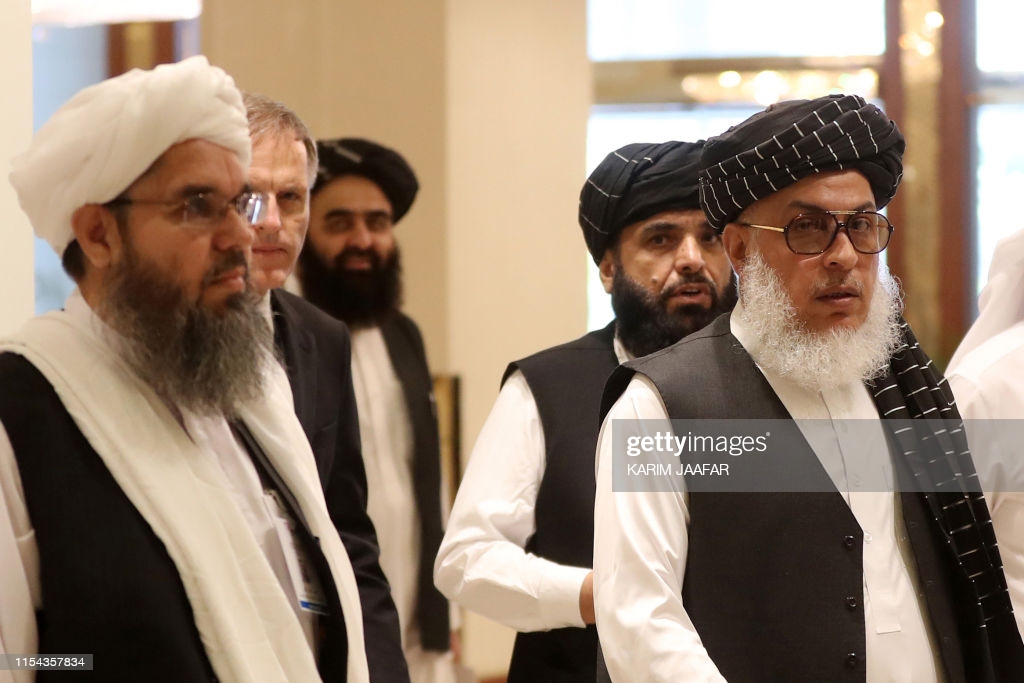Returning to power after 20 years of continuous war against the most powerful militaries from around the world, the Taliban are now a reality. Taliban have proved to be the inevitable stakeholder of the region who has returned to power after historic and unprecedented resistance against a coalition of almost 56 countries led by the United States. Taliban also scrapped the investment of trillions of dollars, strategies, time and energies through a dedicated, well-organized well well-managed and well-planned resistance for two long decades.
Taking over Afghanistan:
After signing the peace deal with the United States, the Taliban took control of the country overnight in a dramatic and shocking development. The Democratic president of Afghanistan Mr. Ashraf Ghani decided to leave Kabul overnight and left the army to act at will. Over 300,000 Afghan National Army and Police force collapsed within hours and the whole of Afghanistan fell by August 15, 2021.
Taliban formed an interim cabinet under the Emirate of Shaikh Haibat Ullah Akhundzada who was the Supreme Commander of Taliban after the killing of Mullah Mansoor Dad Ullah in a drone attack in 2015. Taliban rapidly restored the law and order situation in the country and overcame northern areas after limited resistance from Uzbek, Tajik and Hazara Commanders in Balkh, Panjshir and elsewhere. The establishment of peace and credible government representation throughout the country boosted trust, self-confidence and commitment both among the Taliban and the Afghan public. Afghans were dying for a sigh of relief and a moment of peace at all costs and finally they had it.
Commitments and Follow-up:
In a bid to keep the promises of the Doha peace deal, the Taliban vowed to abide by the agreement and promised not to allow the use of Afghan soil against other nations. Although, the killing of Al-Qaida leader Aiman Al Zawahiri in Kabul raised concerns among the Western nations but Taliban assured commitment to their promise timed and again.
Recognition of the Taliban government by the UN and international community is still dependent on women’s rights, regional responsibilities and adoption of certain standards of human rights as proposed by the UN and Western allies but the Taliban remain stuck to their Islamic ideology and committed to follow it at all costs.
Economic Progress:
Taliban claim that Afghanistan is the only nation in the world that has no debt or interest to pay. Afghan Taliban have rapidly utilized all resources to pursue the trust and cooperation of investors where China is the main player in almost all major sectors of the Afghan economy. China has been working on dams, roads, mining, infrastructure, airports, rail networks and the aviation industry as well as the training and evaluation sector.
Taliban signed a number of agreements with China including the construction of a changer rail network and the Wakhan trade route. Some of the major developments of the Taliban economic strategy are as under.
Qosh Tepa Canal:
After taking power, the Taliban dramatically turned to complete the Qosh Tepa Canal with surprising speed and accuracy. This canal is designed to originate from the Amu River and irrigate some 5050,00 hectares of desert and turn it into fertile agricultural land. Qosh Tapi Canal will rejoin the Amu River after irrigating lands in Northern Afghanistan with a length of 285 km. Amazingly, the first phase of this iconic project has been completed and now contributing to the national economy. According to analysts, after the completion of this project, Afghanistan will not only become self-sufficient in Agricultural production but will fulfill the needs of the neighboring countries. The agricultural self-reliance of Afghanistan is just beginning.


